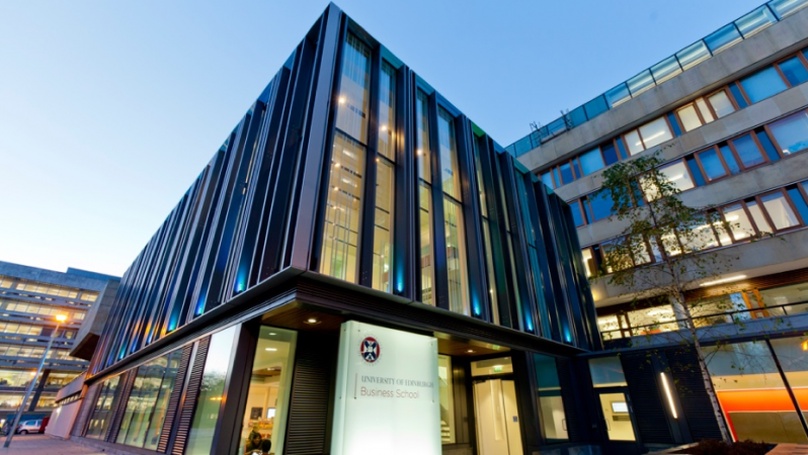Profile
Hello there! I am currently a Lecturer and Assistant Professor in Predictive Analytics at the University of Edinburgh Business School. Before I landed here, I taught Computer Science at the University of Exeter. Before that, I worked as a research fellow at the University of Sussex from 2017 to 2019, followed by a postdoc role in Exeter’s Computer Science department from 2019 to 2021. You could say I have made my way around the UK academic world.
In terms of research, I am all about probabilistic machine learning and Bayesian non-parametric predictive methods. If it involves Gaussian Processes or Student-t Process modelling, I am in. These days, I am exploring topics like causal inference, time series forecasting, data-driven option pricing (yes, making sense of all that financial data), algorithmic fairness, and even the science of human mobility. It keeps things interesting.
I am currently leading a lively online Research Interest Group on Gaussian Process Modelling, which has around 850 members as of October 2024. We chat about Bayesian non-parametric modelling, Bayesian optimisation, inference, computation, and so much more. Feel free to join us on Slack if that sounds like your cup of tea.
On campus, I am also putting together a student-focused stats study group. It is a space where we dive into all things stats, complete with resources and tools to boost your skills. Check out the Statistics for Business School Research if you are curious to learn more.
For anyone thinking, I would love to do a PhD with this guy, keep an eye on the University of Edinburgh Business School’s PhD Programme. If you have questions or ideas, feel free to drop me an email or send me a message directly on Slack. Let us make some academic magic happen!
- Gaussian Process
- Bayesian Non-parametrics
- Time Series
- Algorithmic Fairness
- Human Mobility
PhD in Mathematics and Statistics, 2017
University of Leicester, UK
BSc in Mathematics and Applied Mathematics, 2013
Shandong University, China
News
04/09/2024, New research reveals that human mobility patterns are highly predictable, driven by biological needs and social structures. This study highlights that even with limited data, understanding location-based contexts can significantly enhance predictions of movement trends, offering valuable insights for fields like urban planning and crisis management. If you are interested in this research, please follow this link.
13/04/2022, great work with our team! Think of your privacy, look around your social connections online, and you’ll have interest in this paper, please see link.
Experience
Deliver both online teaching and face to face teaching in Business School. Taught modules and programs include
Deliver both online teaching and face to face teaching in Computer Science and Data Science. Taught modules include
- Programming
- Social and Professional Issues of the Information Age
- Computer and Internet
Join in
- an US Army Research project: Identification of human mobility models using socio-spotio-temporal predictive models
- BioComplex Lab
Join in
- an EPSRC project: Injecting Ethical and Legal Constraints into Machine Learning Models
- Predictive Analytics Lab (PAL)
Recent Posts

Welcome to Statistics for Business School Research! This is a webpage to document and share some basic statistical tools, e.g. statistical tests, regression models that are extensively used in business school research. All posts and blogs are currently contributed by PhD researchers from University of Edinburgh Business School. Topics such as credit scoring, risk forecasting and asset pricing will primarily be covered, as these span our current main research interests.
Projects
Featured Publications
This study reveals that human travel patterns are highly predictable, driven by basic needs and social influences, and shaped by factors from personal preferences to global disruptions like pandemics. By examining variations in time, activity, and location—known as “predictability states”—the research identifies unique contextual and activity signatures, which could improve short- and long-term mobility predictions, even with limited or incomplete data.
In this paper, we apply entropy and predictability measures to analyse and bound the predictive information of an individual’s mobility pattern and the flow of that information from their top social ties and from their non-social colocators.
In this paper, we focus on mitigating the harm incurred by a biased machine learning system that offers better outputs (e.g., loans, job interviews) for certain groups than for others. We show that bias in the output can naturally be controlled in probabilistic models by introducing a latent target output.
In this paper, we propose a unified framework which is used not only to introduce a novel multivariate Student-t process regression model (MV-TPR) for multi-output prediction, but also to reformulate the multivariate Gaussian process regression (MV-GPR) that overcomes some limitations of the existing methods.

